One of the most common questions I get as a medical doctor from patients who are into fitness is which supplement is better between BCAAs and pre-workouts.
Now, I'm usually careful with these questions because I know both are useful in different circumstances, but for this one, I normally side with a pre-workout.
I've published this report to show you why I think a pre-workout is better.
So, without further ado, let's dive in.
Quick Summary
- A pre-workout might be a better supplement because it can help boost your energy levels during your workout sessions while BCAAs might be relevant for athletes who seek recovery after an intense training session.
- Benefits of pre-workouts include more energy and strength to power your workouts, increased endurance, and mental focus.
- A daily intake of 144 mg per kg body weight of BCAAs is recommended. It translates to 9 g for the average woman and 12 g for men per day.
- Personally, I've observed that pre-workouts tend to offer a more pronounced effect for those looking to maximize their workout intensity.
Which Is Better BCAA Or Pre Workout?
A pre-workout supplement is better because it will help you increase your fitness level and work harder. This is the number one goal if you want to build lean muscle mass.
However, without the nutrients to support muscle growth, you can struggle to build new muscle fibers. You can achieve that with a standard whey protein, with BCAA only really becoming relevant for performance athletes and bodybuilders.
What Is BCAA?
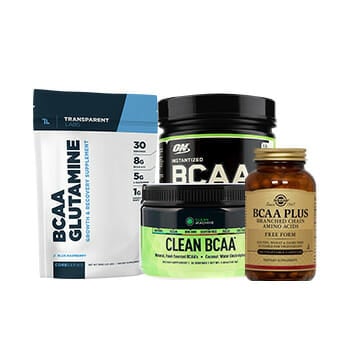
BCAA (branched-chain amino acids) is a set of 3 essential amino acids called leucine, isoleucine, and valine. They are essential because the body cannot produce them, which means they have to be sourced from food in your diet or through BCAA supplements.
The ultimate effect is to help your body’s protein synthesis to create and repair muscle fibers. This is what makes it such an important ingredient. As a medical doctor, I usually recommend taking them during those heavy training periods when your body is completely depleted.
1. Benefits
According to studies published in the National Library of Medicine, BCAAs help in muscle recovery and the preservation of lean body mass in weight loss [1].
As a medical doctor, I usually recommend them for my weight loss patients during cardio, particularly fasted cardio, to preserve lean body mass and to prevent muscle protein breakdown. Here is a quick list of the main benefits:
- Faster muscle recovery times after training
- Increased lean muscle mass production
- Reduced fatigue during training
- Prevents muscle wasting
- Reduced blood sugar levels
- Speeds up fat burning and weight loss
Many of my patients have reported overwhelmingly positive experiences with the use of BCAAs as part of their nutritional and fitness regimens.
They have consistently shared how BCAAs have contributed to their well-being, assisting in muscle recovery, reducing fatigue, and enhancing overall physical performance.
These positive outcomes have not only improved their exercise routines but have also positively impacted their overall health, reinforcing the potential benefits of BCAAs as a valuable supplement.
This anecdotal evidence is supported by a growing body of scientific research that delves into the mechanisms of muscle synthesis and recovery facilitated by these amino acids.
2. Recommended Dosage
As a physician, I usually recommend a daily intake of 144 mg per kg body weight, for the average user. This is equivalent to 65 mg/lb and translates to 9 g for the average woman and 12 g for men per day.
This recommendation is in line with regulatory aspects and quality standards that ensure product safety and efficacy, with many supplements undergoing rigorous testing protocols.
However, note that this is not always the case for some of my patients. It's better to visit a healthcare provider for a custom recommendation and advice, especially if you have preexisting conditions.
The average that you will find in supplement products is about 5 or 6 grams per serving.
3. When Should You Take It?
When you should take BCAA supplements depends on what you're aiming to achieve. If your purpose for taking them is delayed fatigue and increased energy, then you should definitely take them before your workout. But if your goal is to prevent muscle soreness, and repair and rebuild muscle, then take it after.
Related:
4. Drawbacks
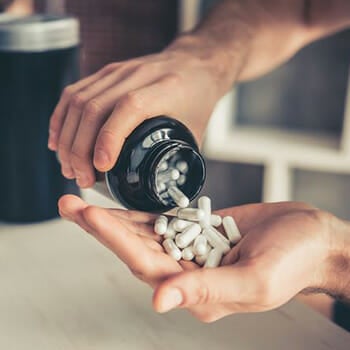
Except in cases of overdose, BCAAs are generally safe, and your body needs them for normal functioning.
However, as a medical doctor, I have encountered cases of patients who got such great results that they doubled and tripled their normal dose. While it didn't lead to anything serious, some of the common symptoms of the overdose included headaches, fatigue, dizziness, bloating, diarrhea, and nausea.
Basically, just stick to the recommendations.
BCAA supplements are convenient enough that it’s simple to consume them shortly before or after a workout if you feel it makes a difference for you.
- Marsha McCulloch, Registered Dietician
What Is Pre Workout?
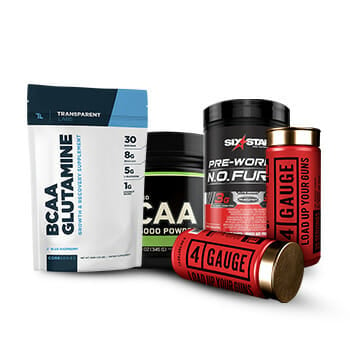
A pre-workout is a capsule-based or powder fitness supplement made of ingredients that aim to improve energy levels and endurance during physical activity and, at the same time, reduce fatigue, as per reports published on Live Science [2].
As a doctor, I recommend pre-workouts to everyone from beginners to athletes who want to get the most out of their training sessions. That includes if you want to build more muscle or lose fat to achieve incredible feats of fitness.
Related Articles:
1. Benefits
With certain muscle-building and fat-loss goals in mind, the best pre-workouts available will bring you to your goal much quicker. But unlike post-workout shakes, they don’t focus on providing nutrition that helps to build new muscle fibers.
Instead, they give you the ammunition to perform better and for longer. Here is a quick list of the benefits:
- More energy and power to maximize pumps and build muscle
- Provide more strength to lift more
- Boost endurance so that you can add more sets
- Better physical performance and mental focus
- Fat burning ingredients for faster weight loss
2. Recommended Dosage

For pre-workout supplements, it's difficult to give a general dose recommendation given the different ingredients in it. As a physician, I like recommending it from a caffeine perspective; not more than 200 mg of caffeine.
Anything above that can cause jitters, anxiety, nausea, and other symptoms that I've come across from my patients who have gone overboard with pre-workouts. Creatine is another one you don’t want to take too much of and usually, you’ll find 1 to 2 mg per serving.
Basically, you want to stick with the recommended dose on the packaging for each training session. But to be safe, it's better to consult a doctor first before even starting your first dose. For those who want to check the best pre-workout supplements without creatine, read our blog.
3. When Should You Take It?
You should take pre-workouts about 30 minutes before starting your training session for you to feel the most effects when working out.
Timing your pre-workout is important, but it generally depends on your digestive system and metabolism so try experimenting with it a little.
As a guide, I generally recommend taking it about 15 to 30 minutes before you start warming up.
4. Drawbacks

While the increased endurance and power of your pumps are great, you do have to watch out for some rare pre-workout side effects. Your body can have some reactions like jitters and insomnia, especially when it comes to stimulants.
Some people, including several of my patients, have mentioned experiencing an energy crash after their workouts when the effects of pre-workout supplements start to wear off. In such cases, my patients have found relief by exploring bulking training shakes as a solution.
Are BCAAs Good for Pre-Workout?
BCAAs are great for pre-workout—they boost performance and accelerate muscle building or fat burning.
Research by the National Institutes of Health shows they enhance muscle strength and endurance by improving nutrient delivery to muscles during exercise [3]. Plus, when carbs run low, your body can switch to amino acids for energy, keeping you going longer [4].
Also, studies indicate BCAAs trigger enzymes that speed up protein building or slow down protein breakdown. This helps preserve muscle, maintain lean mass, and burn fat faster [5].
Many of my patients find that BCAA supplements before exercise help them avoid side effects common with other pre-workouts, like jitteriness or itchy skin. BCAAs keep them focused and comfortable, making their workouts more effective and enjoyable.
Can You Take BCAA And Pre workout Together?

Yes, you can take BCAA and pre-workout together, but you want to pay close attention to the ingredients. You want to avoid getting too much of certain substances like caffeine, which are sometimes found in both types of powder.
For the most part, research has shown that negative effects are limited, and based on my observations with my patients, there have been no known negative impacts from combining the two.
My patients' experiences align with this research, as they have reported positive outcomes and a lack of adverse effects when incorporating these elements into their fitness routines. I’ve even come across a pre-workout with BCAA included so you could consider stacking them in one product.
Should I Take Pre Workout Or BCAA If I Had To Pick One?
When it comes to choosing between pre-workout supplements and BCAAs, it ultimately depends on your specific needs and goals. If you're looking for a boost in energy, stamina, and muscle pumps, then pre-workout supplements are the way to go.
They can provide you with the extra push you need to power through your workouts. However, if you're finding it challenging to build lean mass despite training hard, then BCAAs might be a better option for you. They can help with muscle recovery and growth.
If you've tried both, we'd love to hear about your experiences and which one you found more beneficial. Reach out to us on our social media pages and share your thoughts.
References:
- https://www.ncbi.nlm.nih.gov/pmc/articles/PMC4700774/
- https://www.livescience.com/53095-do-preworkout-supplements-work.html
- https://pubmed.ncbi.nlm.nih.gov/8235192/
- https://www.ncbi.nlm.nih.gov/pmc/articles/PMC4241904/
- https://pubmed.ncbi.nlm.nih.gov/16365096/
About The Author
You May Also Like
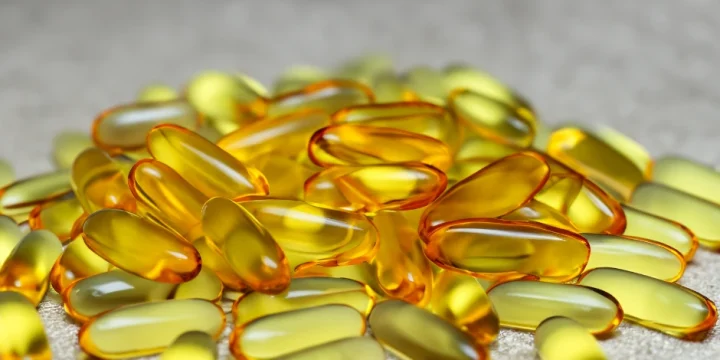
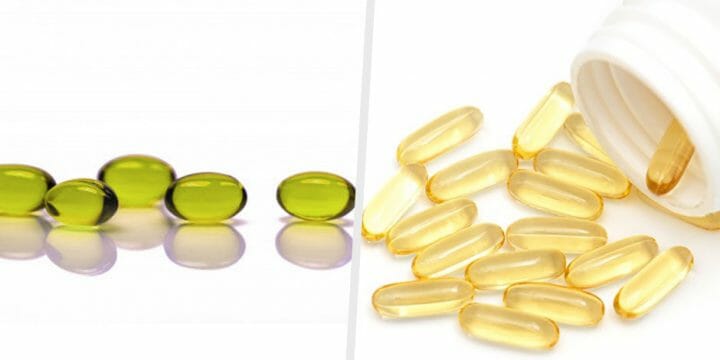


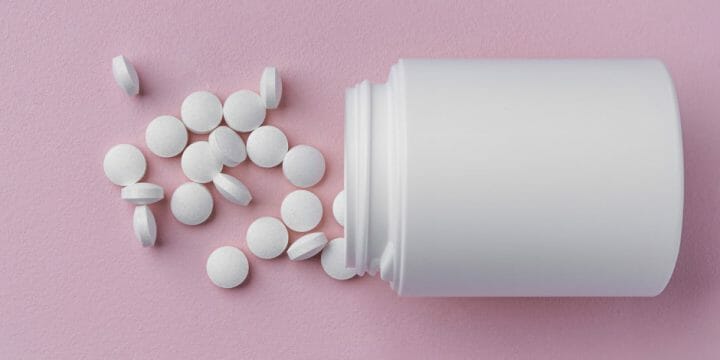


If I’d be asked to choose between pre-workout vs BCAA, I’d choose both. Pre-workouts to improve my full training. BCAA to help my muscles recover. They’re both necessities in training.
What about amino acids vs pre-workout? Is there any advantage or disadvantages?